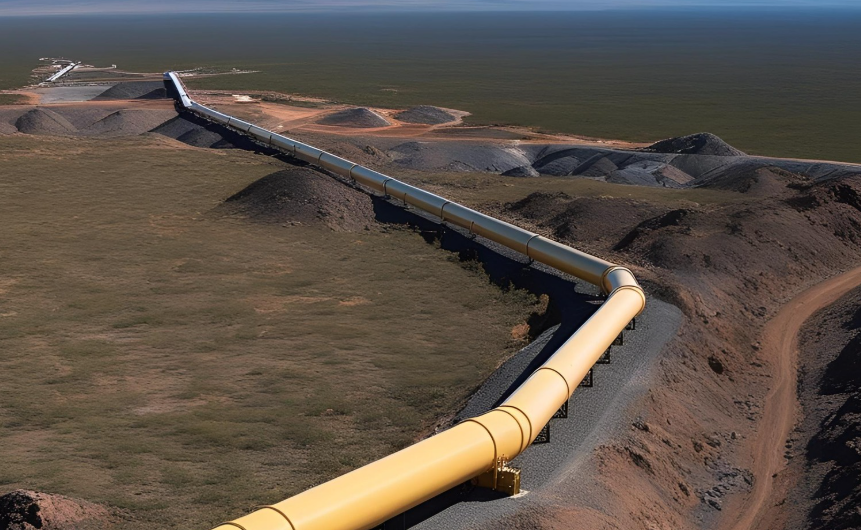Africa's Energy Future: EACOP Funding Secured – A Game Changer?
Editor’s Note: News broke today about the securing of funding for the East African Crude Oil Pipeline (EACOP). This article explores the implications of this landmark decision for Africa's energy future.
Introduction:
The East African Crude Oil Pipeline (EACOP), a long-debated project spanning Uganda and Tanzania, has finally secured the necessary funding. This momentous development marks a significant turning point in Africa's energy landscape, promising both economic growth and considerable environmental challenges. This article delves into the key aspects of this development, examining the potential benefits, risks, and the ongoing controversies surrounding EACOP.
Why This Topic Matters:
Africa's energy needs are rapidly growing, alongside its population. The EACOP represents a substantial investment in energy infrastructure, potentially boosting economic growth in Uganda and Tanzania through job creation, increased tax revenue, and foreign investment. However, the project's environmental impact, including potential damage to biodiversity and greenhouse gas emissions, is a major concern globally, sparking intense debate among environmental activists and international organizations. Understanding the complexities of EACOP is crucial for assessing its true impact on Africa's energy future and the planet. This article will explore both sides of the argument, analyzing the economic benefits and the environmental risks involved.
Key Takeaways:
| Benefit | Risk/Challenge |
|---|---|
| Economic growth in Uganda & Tanzania | Significant environmental impact |
| Job creation | Potential for community displacement |
| Increased tax revenue | Greenhouse gas emissions contributing to climate change |
| Foreign investment | Risk of oil price volatility |
1. EACOP: A Critical Turning Point
Introduction: The securing of funding for EACOP signifies more than just a pipeline; it represents a strategic shift in Africa's energy policy. This project highlights the continent's increasing reliance on fossil fuels, despite global efforts to transition towards renewable energy sources.
Key Aspects: The pipeline will transport crude oil from Uganda's oilfields to the Tanzanian port of Tanga, significantly reducing the reliance on lengthy and costly alternative transportation methods. This has the potential to transform the economies of both countries, creating thousands of jobs and generating substantial revenue.
Detailed Analysis: The economic benefits are undeniable, but the potential environmental consequences are equally significant. The pipeline’s route traverses ecologically sensitive areas, posing risks to biodiversity, including endangered species. The construction process itself may lead to deforestation and habitat loss, further exacerbating environmental concerns. Furthermore, the extraction and combustion of the oil will contribute to greenhouse gas emissions, hindering global efforts to mitigate climate change.
2. Interactive Elements on EACOP
Introduction: The EACOP project is not just about pipes and pumps; it involves complex interactions between governments, corporations, communities, and international organizations.
Facets: The project has faced significant opposition from environmental groups and human rights organizations, raising concerns about land acquisition, community displacement, and the potential for corruption. These concerns highlight the ethical and social dimensions of large-scale infrastructure projects in developing countries. The project also faces risks related to fluctuating oil prices and potential geopolitical instability in the region.
Summary: The success of EACOP depends not only on its technical feasibility but also on its ability to address the social and environmental concerns raised by stakeholders. Transparent governance, community engagement, and robust environmental safeguards are crucial for ensuring the project's long-term sustainability.
3. Advanced Insights on EACOP
Introduction: A deeper understanding of EACOP requires considering its implications within the broader context of Africa's energy transition and global climate change goals.
Further Analysis: The project raises questions about the balance between short-term economic benefits and long-term environmental sustainability. Critics argue that the investment in EACOP diverts resources from renewable energy development, hindering Africa's efforts to achieve a cleaner energy future. The project also raises questions about the role of international finance in supporting fossil fuel projects in developing countries.
Closing: The EACOP project presents a complex dilemma: balancing the urgent need for energy development with the imperative to mitigate climate change. Careful consideration of the environmental and social implications, coupled with a commitment to transparency and accountability, are crucial for navigating this complex landscape.
People Also Ask (NLP-Friendly Answers):
Q1: What is EACOP? A: EACOP is the East African Crude Oil Pipeline, a planned pipeline to transport crude oil from Uganda to the Tanzanian port of Tanga.
Q2: Why is EACOP important? A: EACOP promises significant economic benefits for Uganda and Tanzania, but also presents considerable environmental and social challenges.
Q3: How can EACOP benefit me? A: Indirectly, through job creation, economic growth, and improved infrastructure in the region.
Q4: What are the main challenges with EACOP? A: Environmental damage, community displacement, and contribution to climate change are major concerns.
Q5: How to get involved with EACOP discussions? A: Follow news outlets covering the project, engage with NGOs working on the issue, and participate in public consultations (where available).
Practical Tips for Understanding EACOP:
Introduction: Navigating the complexities of EACOP requires a multi-faceted approach. Here are some practical tips to help you understand this critical development:
Tips:
- Research the environmental impact assessments.
- Follow reputable news sources for updates.
- Engage with organizations advocating for sustainable development.
- Understand the economic arguments both for and against the project.
- Learn about the social impacts on affected communities.
- Consider the broader implications for Africa’s energy future.
- Support organizations promoting renewable energy in Africa.
- Advocate for responsible resource management.
Summary: The EACOP project is a significant development with far-reaching consequences. Understanding its complexities is crucial for shaping a sustainable energy future for Africa.
Call to Action: Ready to dive deeper? Subscribe for more insights on Africa's energy future and the ongoing debate surrounding EACOP.

